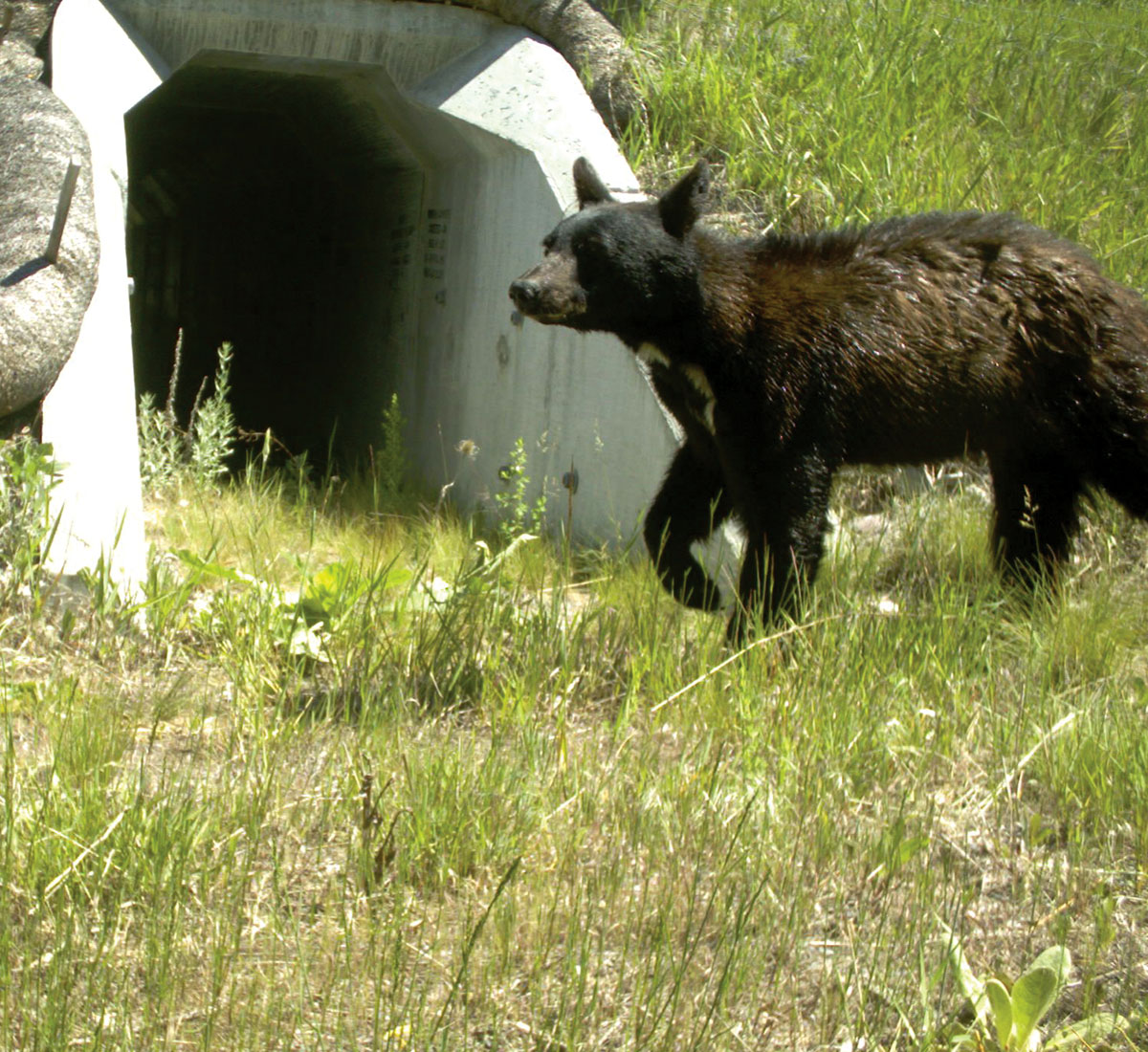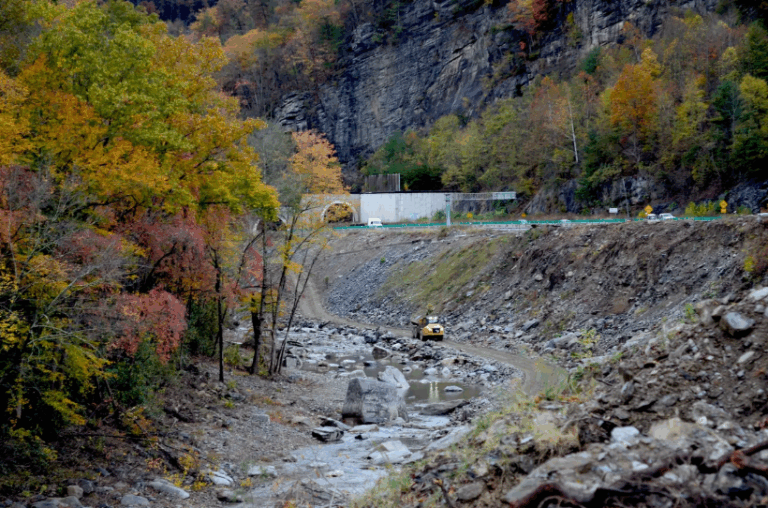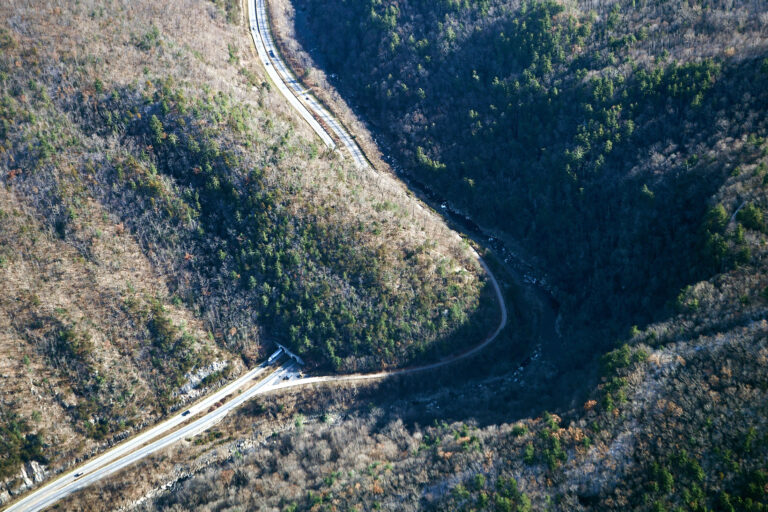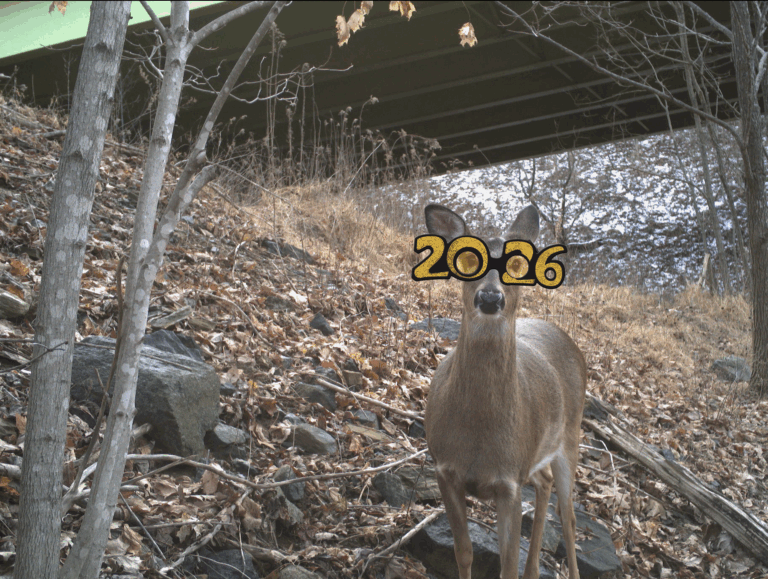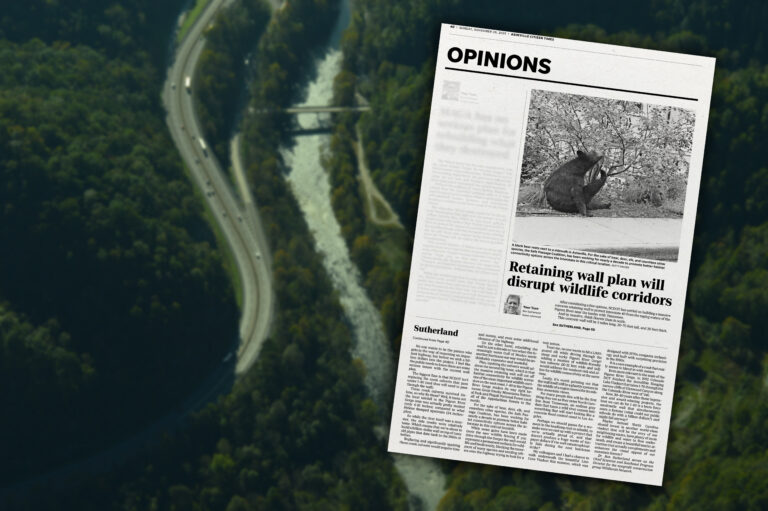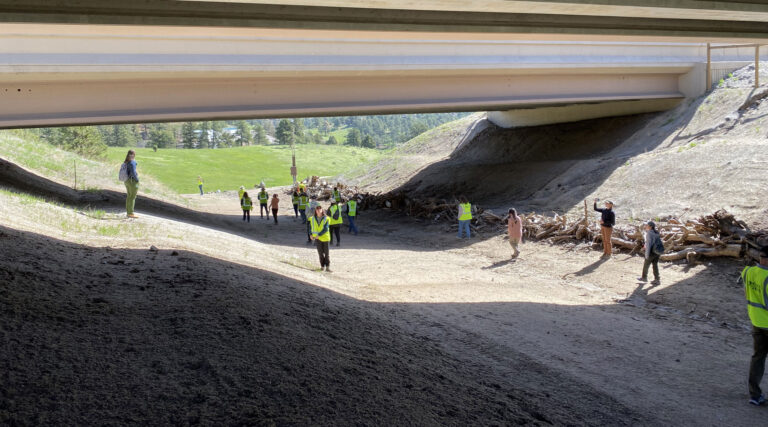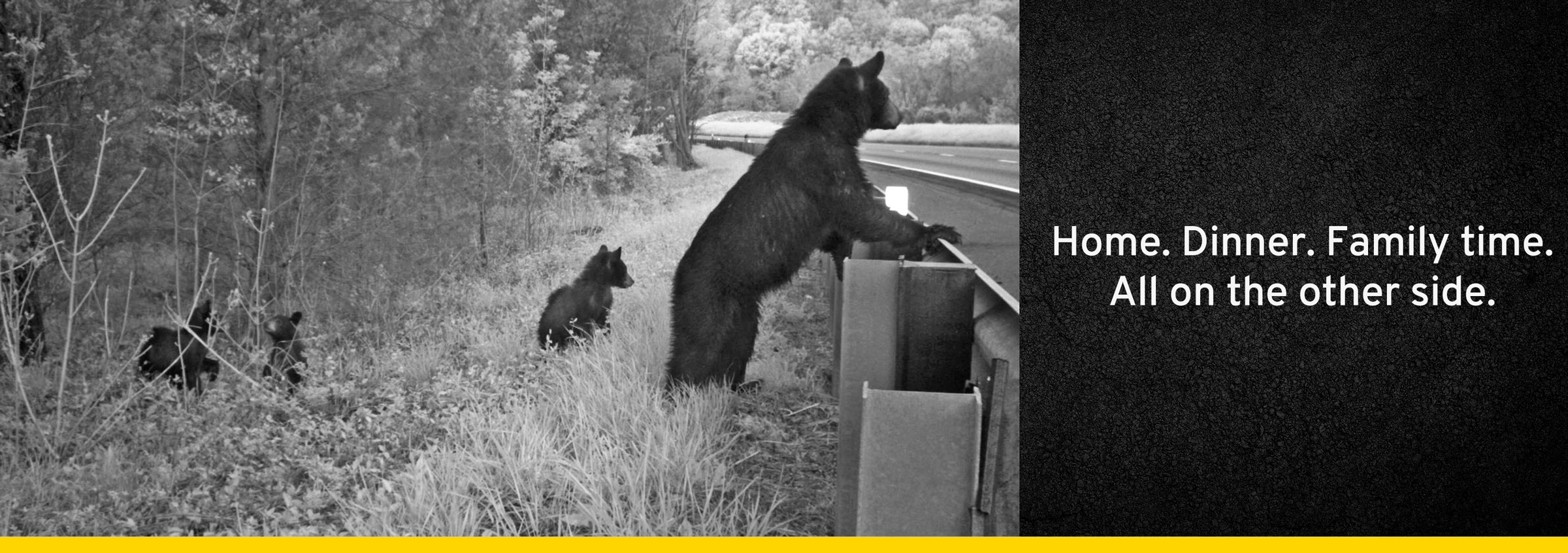
Help animals safely cross our mountain highways.
“C’mon baby!”
To cross or not to cross?
For wildlife whose ancestors have traversed our landscapes for centuries in search of food, mates, and territory, this is not the question. Their instinct is to continue moving across age-old geographical paths.
But humans have made this natural migration more and more difficult by fragmenting large sections of protected forest, bisecting them with huge roads fraught with heavy, fast-moving vehicles.
The resulting rise in collisions with large mammals has become a serious concern not only for conservation, but also for human safety, economics and culture.
Video courtesy of Susan Detwiler. While driving through the Pigeon River Gorge, Susan and her husband captured this hold-your-breath moment, which demonstrates the dangerous plight of wildlife navigating our roadways. They sent us this video in support of the work being done to help these animals.
We’re In This Together
Nearly a hundred professionals and staff from more than 20 partner organizations contribute their time, skills, and technical assistance. Together, we are working to create opportunities for wildlife to safely cross our mountain highways in North Carolina and Tennessee.
Latest News
Word from the Smokies: I-40 rebuild to affect wildlife for decades
Posted on January 27, 2026
Word from the Smokies: Plans for rebuilding I-40 spur concern for wildlife
Posted on January 17, 2026
2025 wins and next steps for wildlife crossings
Posted on December 17, 2025
Opinion: Plan for I-40 Pigeon River Gorge retaining wall misguided
Posted on December 1, 2025
Road ecologists study the intersection of transportation and the wild
Posted on October 15, 2025
Don’t miss a thing.
Subscribe to the Safe Passage newsletter to stay up to date with upcoming events, how you can help, and what the coalition is doing toward wildlife mitigation in the region.
Bears at guardrail image courtesy of Bridget Donaldson, Virginia Transportation Research Council.


